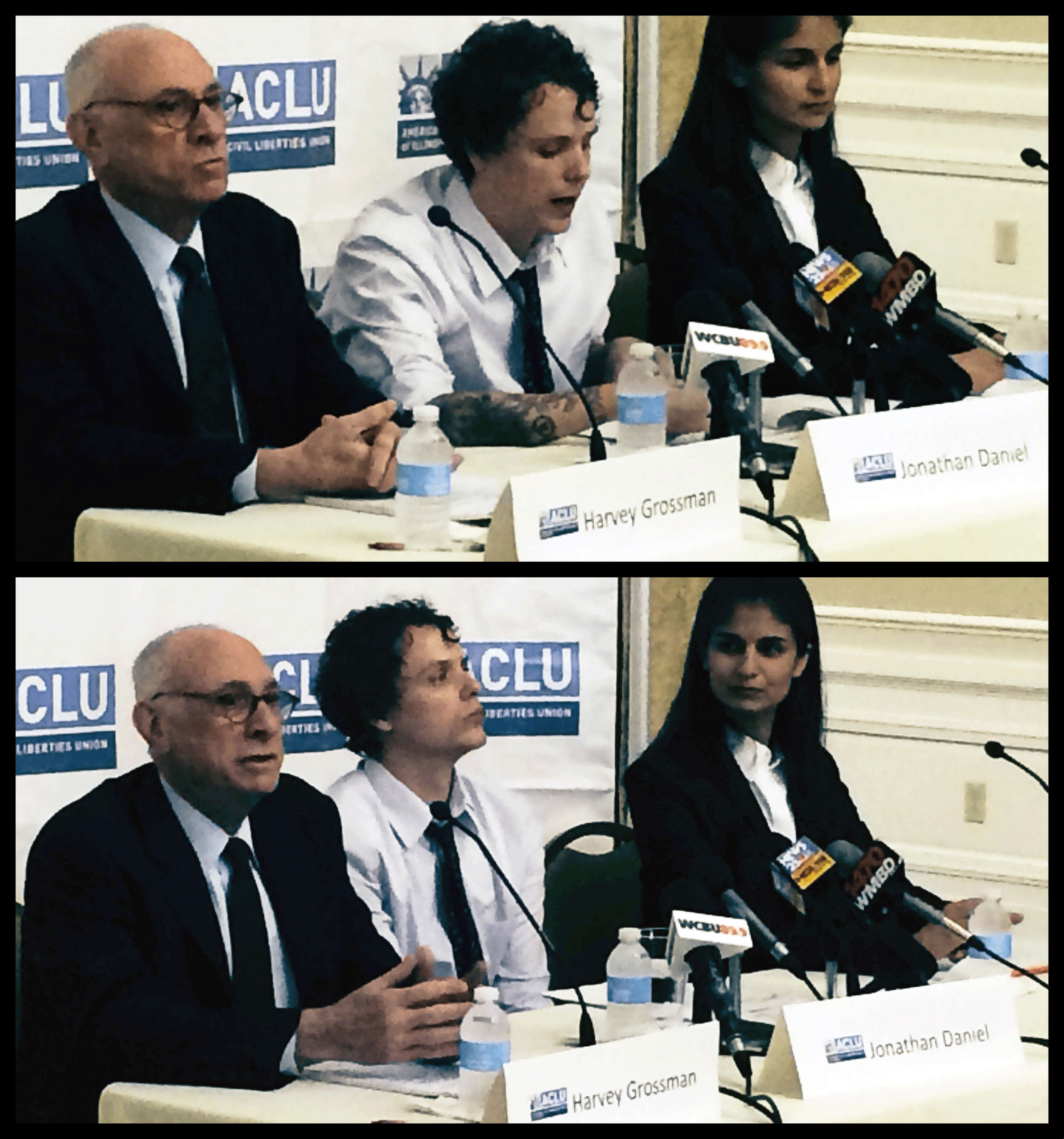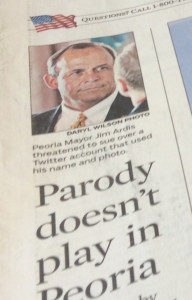Well, you could see that one comin’.
The American Civil Liberties Union has announced its intentions to file a federal lawsuit against the city of Peoria alleging violations of the First and Fourth Amendments in the April 15 police raid on a West Bluff home over a bogus Twitter account pretending to be Mayor Jim Ardis, who didn’t exactly take it as the parody its owner says it was.
In coming to Peorian Jon Daniel’s defense, ACLU spokesman Ed Yohnka said that “we hope this action will send a strong signal to all that wrongful use of the police power to suppress protected speech, even when it is critical or makes fun of public officials, is an abuse of power and is not acceptable.”
The ACLU is taking on this case because it’s the only one of its kind in the nation that the organization is aware of, and because — particularly with the meteoric growth of social media — it is looking to have a court establish a precedent that serves as a warning to others.
Some thoughts on what has been dubbed “Twittergate” — had enough of the “gates” yet? — which has become not the gift that keeps on giving but the nightmare that never ends:
Some lawsuits are worth fighting on principle, even if they expend taxpayer dollars, but this is not one of them. Unsympathetic though the plaintiff may be with the vulgar comments that drew the mayor’s ire, well, the First Amendment protects even those.
Beyond that, we do think this particular search and seizure stretched the boundaries of what’s reasonable, making it highly questionable under the protections afforded by the Fourth Amendment (and it’s notable that the seized computers, cellphones, etc. have already been returned at the ACLU’s request). Even Police Chief Steven Settingsgaard, whose officers executed the search warrant, initially had misgivings, saying in an internal email correspondence obtained by the Journal Star through a Freedom of Information Act request that “this phony Twitter account does not constitute a criminal violation.” Unfortunately, there was a change of mind.
We especially don’t like the idea of the city spending any more public resources than it absolutely must to defend itself in a case that may not be winnable. If City Hall can fall on its sword — made a mistake, won’t happen again, should have said so before — without inviting another lawsuit that seeks monetary damages, which is not the ACLU’s cause, it should. We appreciate how hard that may be, but in this case the battle would be undertaken with other people’s money, with no shortage of other uses for it. And who needs the continued distraction? Peoria already has gotten a national black eye out of this, it’s already consumed far too much energy, so why compound the damage to this All-American City? Cut taxpayers’ losses.
One lesson for any leader is that you can’t let personal feelings or anger, even if warranted, get the best of you by obscuring your public responsibilities. Again, taxpayers have much to lose here and little to gain. There have been too many misjudgments on their behalf already. City leaders should recognize that and act accordingly.
Cross-posted from The Peoria Journal Star.


